Your skin becomes dry, harsh, and irritating during the winter months because the cold, dry air zaps all the moisture out of it. Low humidity and excessive dryness can cause psoriasis, eczema, wrinkles, blemishes, and skin sensitivity, among other skin disorders. For many people, keeping their skin smooth and radiant during the winter months is difficult. Wintertime may render the cleansers, moisturizers, and lotions ineffective. Thus, you require a skincare regimen that is effective in the winter.
Many board-certified dermatologists and skin specialists advise utilizing rich moisturizers and gentle cleansers to maintain hydrated, well-nourished skin. Winter skin care products including creams, emollients, and oils can help you maintain soft, healthy skin throughout the frigid months. These goods have the ability to retain moisture and increase hydration levels.
Table of Contents
Winter skin care routine
Here are some efficient skincare strategies you should use to keep your skin smooth and healthy during the winter. When your skin starts to get dry, dehydrated, and lacking in moisture, it’s time to start a new skincare regimen.
Use Milk Cleanser

During the winter, cleansing is essential because the cold temperature makes skin abnormally dry and flaky. Our skin becomes dry throughout the winter because it doesn’t produce as much oil as it usually does. One of the most crucial parts of the winter skincare routine is routine face washing. It’s a terrific idea to use milk as a cleanser because it can help your face feel nourished and eliminate any dirt and pollutants. You’ll experience fresh and soft skin after using a milk cleanser.
Exfoliate Your Skin
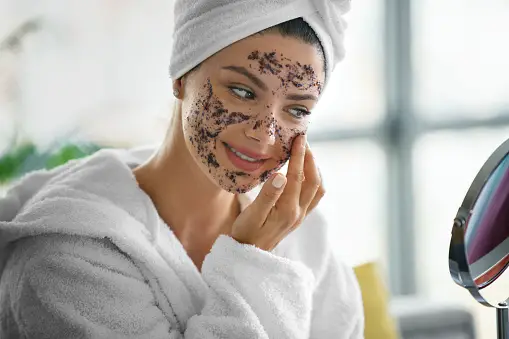
Unbelievably, the winter is the ideal season for exfoliation. You can maintain softer, smoother skin throughout the winter by learning how to exfoliate. When you exfoliate your skin, you may wave goodbye to dry, flaky skin cells. Your skin is already dry during the winter, so you need to be really cautious and exfoliate gently. Overdoing or vigorous exfoliation can damage the epidermis, making the condition more dry and irritable.
Use a cleanser that contains hyaluronic acid, glycolic acid, BHAs, and AHAs for a mild exfoliation. To calm and moisturize your skin, exfoliate at least twice a week. Thankfully, there are several of exfoliators out there that you may try in the winter to get skin that looks smoother and more radiant.
Incorporate Vitamin C Into Your Winter Skincare Routine
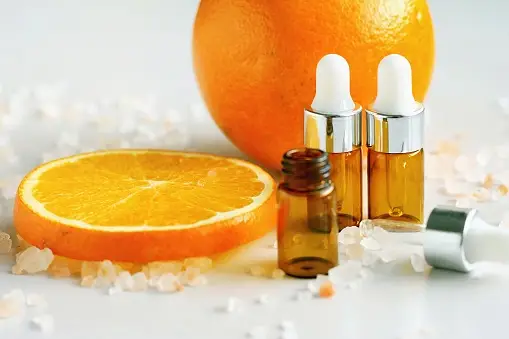
Without a doubt, vitamin C has amazing qualities that give your skin the much-needed radiance that the cooler months bring. For skin that is tighter, brighter, and more protected, vitamin C is a good option. Because it preserves your skin and stimulates collagen, it’s the ideal ingredient for skincare products during the winter.
Numerous skin care experts claim that vitamin C serum can strengthen your immune system and shield your skin from UV ray damage. It has antioxidant qualities and prevents sun-induced damage from free radicals. Numerous research findings indicate that vitamin C impedes the onset of skin cancer.
Vitamin C can also help your skin stay moisturized and nourished by retaining moisture. To fully benefit from vitamin C’s skin-brightening effects, incorporate it into your winter skincare regimen.
Apply Winter Face Masks
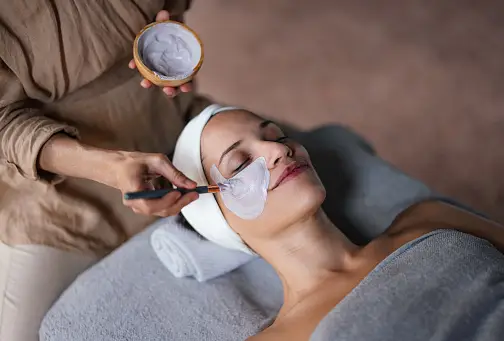
The secret to regaining your skin’s beauty throughout the winter months is to use moisturizing and nourishing face masks. You can use a face mask made especially for the winter to keep your skin nourished and moisturized. A winter face mask is simple to make with readily available items from your kitchen. Your skin may be naturally hydrated and moisturized by using a winter face mask.
For example, you can blend together two incredible moisturizing and healing ingredients: shea butter and coconut oil. For a beautiful complexion throughout the winter, mix 1 tsp shea butter and 1 tbsp coconut oil and gently massage into your skin.
You can experiment with various components to incorporate face masks for winter into your skincare regimen.
- Rosewater and honey
- Water from coconuts
- Honey and carrots
- Butter with bananas
- berries
- Cocoa butter and olive oil
- Milk cream and honey
- Raw milk and papaya
- Olive oil with avocado
- Honey with rice flour
Drink Plenty Of Water

When the temperature drops, water from your body evaporates more quickly, leaving your skin feeling dry, rough, and irritated. To attain smooth and healthy skin throughout the dry winter months, make sure your skin is well-hydrated. Aim for 8 to 10 glasses of water every day to maintain the moisture balance of your skin.
A study found that increasing your water intake by a few ounces improves your skin’s health and helps you appear younger and less prone to wrinkles and fine lines. But according to a lot of dermatologists, drinking water alone won’t hydrate and moisturize your skin. To keep hydrated and enhance your skin from the inside out, you must adhere to a skincare routine and good hydration habits.
Take Care Of Your Hands
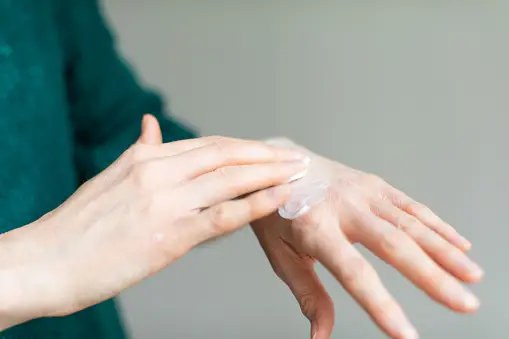
Wintertime brings with it a lot of cracked and chapped hands. Our skin becomes dehydrated in cold, dry air with low humidity. Maintaining smooth and soft hands is quite difficult because we wash and dry our hands numerous times a day. By practicing good hand hygiene, you can keep your hands supple throughout the winter. To wash your hands, use an antibacterial hand wash. Use a body scrub to gently remove dead skin cells from your hands twice a week.
Use sunscreen on your face and hands, and keep your hands out of the direct sunlight. To maintain a balance of moisture, occasionally moisturize your hands. To keep your hands hydrated, use body lotion, hand cream, or balm. To soften and moisturize your hands, try using sesame seed oil, almond oil, and olive oil.
Don’t Forget Your Feet

Since shoes and socks conceal the feet in the winter, they are one of the organs that are most often neglected. During the winter months, it’s crucial to take care of your feet and steer clear of serious skin issues. The most frequent foot issue in the winter is cracked heels. Heel fissures occur when your skin thins and becomes more vulnerable to severe dryness due to a decrease in natural oil production.
Maintaining the health of your feet during the winter requires careful protection. Because fungus thrives in warm, damp environments, keep your feet clean. Dry weather can cause blisters, red spots, itching, cracked heels, and occasionally even bleeding. Deep fissures in the heel can result in fungal and bacterial infections. A helpful skin care tip to maintain healthy feet is to apply a moisturizer or foot cream after every wash. This is especially important in the winter.
Add Hyaluronic Acid To Your Skincare Routine

One of the most incredible anti-aging substances is hyaluronic acid, which is well-known for its unusual ability to retain water. It minimizes wrinkles and fine lines from developing and keeps your skin nourished and hydrated. It functions as an antioxidant to maintain skin youthful, bright, and beautiful. Applying a moisturizer with hyaluronic acid during the winter will help you keep moisture and hydration in your skin and promote healthier skin.
Use Retinol This Winter

The greatest way to maintain youthful-looking, bright skin throughout the winter is, in the opinion of numerous physicians, to incorporate retinol into your skincare regimen. Almost all dermatologists, cosmetic surgeons, and aestheticians advise using retinol, often known as vitamin A, in your skincare regimen. It is known as a wonder anti-aging substance that strengthens collagen, promotes cell turnover, and enhances the look of the skin.
Continue Eating Healthfully
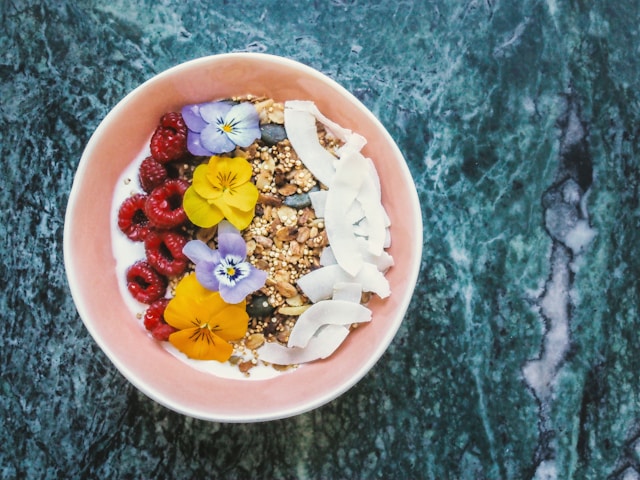
To enhance the general health of your skin, it’s critical to eat a diet high in nutrients and health. A poor diet can lead to weight gain, adverse effects on your metabolism, and severe skin issues. A medical school study found that nutrition has a significant effect on skin aging and overall health. You may simply incorporate a number of nutrient-dense foods into your skincare routine that are beneficial to the health of your skin. This is a list of the healthiest foods for skin.
- Fatty fish (mackerel, herring, and salmon)
- Avocados
- Raspberries
- Strawberries
- Cherries
- Cashews
- Sunflower seeds
- Yams
- Bell peppers in red
- Broccoli
- Tomatoes
- Soy
- Crimson raisins
Give your skin the nutritious nourishment it needs to have radiant skin. For optimal skin cell formation, incorporate fruits, nuts, veggies, and healthy fats into your diet plan. Incorporating these nutritious foods into your diet will ensure that you receive all the important elements needed to maintain and rejuvenate your skin’s youthful appearance.
Take Care Of Your Lips

One of the most prevalent skin issues in the winter is dry, chapped lips. Taking extra care of your lips is highly advised, especially in the winter, according to many board-certified dermatologists. It is basically the lack of humidity and dry air that causes chapped lips. Keeping your lips hydrated is highly recommended to shield them from the cold.
To hydrate your lips, choose hypoallergenic, fragrance-free lip balms that won’t irritate them. The greatest components for healing chapped lips include petroleum jelly, shea butter, and castor seed oil. Throughout the day, use a lip moisturizer multiple times.
When heading outdoors, it is best to use a lip balm with an SPF of 30, as your lips also require protection from the sun. Keep your lips moisturized to prevent chapping. Lips might get more chapped if you lick and pick at them. To keep your skin from chapping, carry lip balm with you and apply a little moisture on it occasionally.
Work Out Every Day

The relationship between exercise and good skin has been the subject of numerous research. Numerous studies have demonstrated that engaging in physical activity can result in skin that appears younger. To enhance the health and appearance of your skin, it’s crucial to combine an excellent skincare regimen with a nutritious diet and regular exercise.
Engaging in physical exercise can enhance blood circulation to the skin, providing nourishment and facilitating efficient cellular regeneration. Improved blood flow can maintain skin healthy and youthful-looking by eliminating pollutants from the skin. Exercise helps clear the pores, prevent breakouts, and treat acne.
Thirty minutes of aerobic exercise can keep your skin looking young and prevent the indications of aging, according to study. It should come as no surprise that exercise helps reduce stress by raising feel-good hormones like endorphins and lowering stress hormones like cortisol and adrenaline. Controlling stress will reduce the likelihood of developing skin disorders such as rosacea, psoriasis, eczema, and acne.
Final Thoughts
It’s time to switch up your skincare regimen as the cooler months arrive to guarantee glowing, healthy skin. With any luck, these winter skincare suggestions will enable you to keep your skin looking great all winter long.
